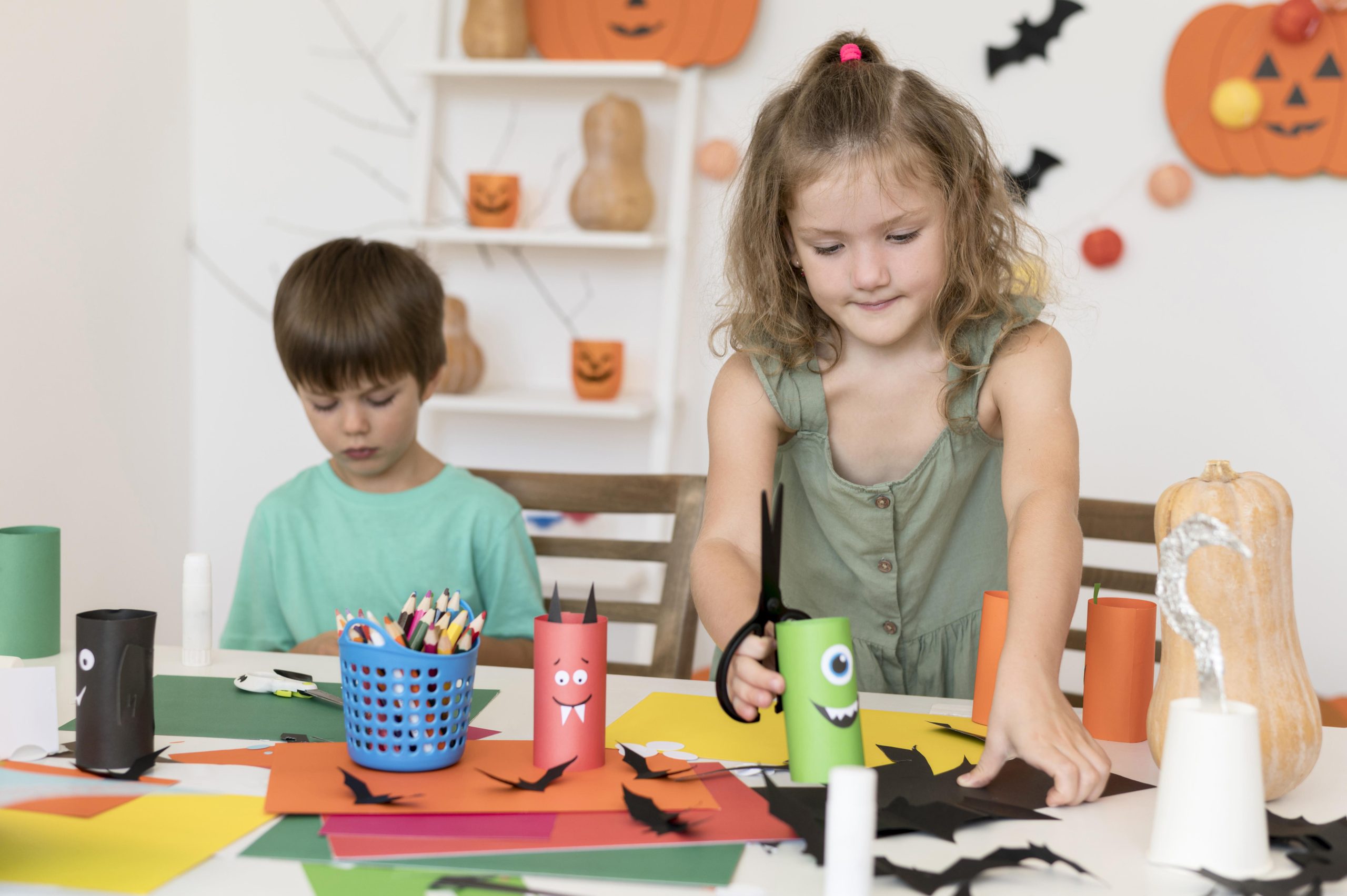Project-Based Learning for Preschoolers
Project-based learning (PBL) is an innovative educational approach that empowers preschoolers to actively engage in hands-on, inquiry-driven projects that promote critical thinking, problem-solving, collaboration, and creativity. Rooted in the belief that children learn best through meaningful experiences and exploration, PBL nurtures their natural curiosity and ignites a passion for learning that will stay with them throughout their lives. In this article, we will explore the benefits of project-based learning for preschoolers and how it can shape their early education journey.
Active Learning and Engagement:
Unlike traditional methods where information is often delivered passively, PBL encourages preschoolers to become active participants in their learning process. By tackling real-world problems or questions that interest them, children take ownership of their projects, fostering a sense of agency and autonomy. This hands-on approach not only deepens their understanding but also instills a love for learning as they discover that their ideas and efforts can make a difference.
Cultivating Critical Thinking and Problem-Solving Skills:
PBL challenges preschoolers to think critically and develop problem-solving skills from an early age. As they investigate topics of interest, they learn to ask questions, gather information, and analyze data to arrive at informed conclusions. This process of inquiry equips them with essential skills that form the foundation for future academic and real-life challenges.
Nurturing Creativity and Imagination:
Preschoolers are naturally imaginative and creative. The Top schools in Kalyan harnesses this creativity by encouraging children to come up with unique solutions to problems or express themselves through various forms of art, such as drawing, crafting, and storytelling. Emphasizing creativity helps build confidence, self-expression, and the ability to think outside the box.
Collaboration and Communication:
Project-based learning often involves group work, allowing preschoolers to learn valuable social skills like collaboration and effective communication. Working in teams teaches them to share ideas, listen to others, and resolve conflicts. These early experiences lay the groundwork for future teamwork and cooperation.
Relevance and Connection to Real Life:
PBL offers opportunities for preschoolers to explore topics that resonate with their lives, making learning more relevant and meaningful. For example, a project centered on the local community can help children understand their surroundings and develop empathy and awareness of others’ needs.
Holistic Development:
Projects in PBL encompass multiple subject areas, promoting a holistic approach to learning. Preschoolers can delve into science, math, language arts, social studies, and art, all within the context of a single project. This integration fosters a comprehensive understanding of concepts and encourages children to view knowledge as interconnected and interdependent.
Fostering Curiosity and Lifelong Learning:
Project-based learning nurtures the natural curiosity of preschoolers, cultivating a thirst for knowledge that extends beyond the classroom. When children experience the joy of discovery and accomplishment, they are more likely to develop a lifelong love of learning.
Culturally Responsive and Inclusive Education:
PBL can be adapted to incorporate diverse perspectives and cultural backgrounds, making it an inclusive educational approach. By incorporating multicultural elements in projects, preschoolers develop an appreciation for diversity and learn to respect different cultures and traditions.
In conclusion, project-based learning for preschoolers is a powerful pedagogical approach that capitalizes on their innate curiosity, creativity, and desire to explore. By engaging in hands-on, inquiry-driven projects, children develop critical thinking, problem-solving, collaboration, and communication skills while fostering a lifelong love for learning. Implementing PBL in early education sets the stage for a future generation of adaptable, imaginative, and empathetic individuals who will approach the world with open minds and a hunger for knowledge.


